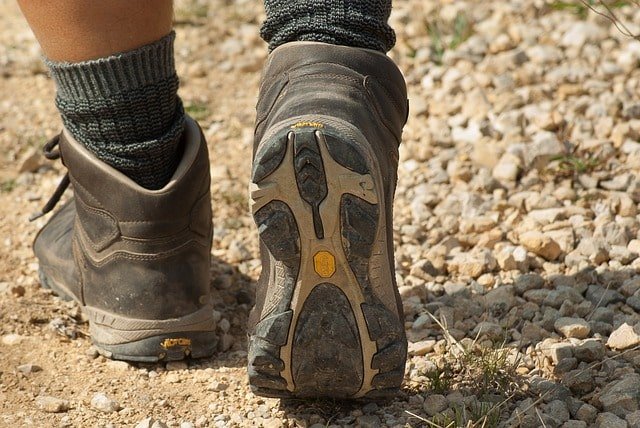Contents
How to Fly Across Europe on a Budget - 2024 Guide

Are you dreaming of exploring Europe but worried about the costs? Luckily, traveling across Europe on a budget is possible, even in 2024. Cheap trips in Europe aren’t just a myth; they’re a reality with the right planning and insider tips.
Imagine strolling through the historic streets of Rome, savoring a croissant in Paris, or marveling at the Northern Lights in Reykjavik without breaking the bank. Budget travel in Europe not only saves you money but also allows you to experience the continent in a more authentic, local way.
In this guide, we’ll uncover practical tips and tricks to help you fly across Europe without emptying your wallet. Whether you’re a seasoned traveler or planning your first European adventure, we’ve got you covered. Get ready to discover affordable flights, hidden gems, and budget-friendly experiences that will make your European trip unforgettable.
Planning Your Budget Trip

Planning your budget trip to Europe is a crucial first step in making your travel dreams come true without spending a fortune. Here, we’ll cover some essential tips and tricks to ensure you have an amazing experience while keeping costs low.
Research Destinations
While Paris, London, and Rome are often at the top of travel wishlists, lesser-known cities can offer just as much charm and excitement at a fraction of the price. By focusing on these budget-friendly locations, you can stretch your travel funds further and discover hidden gems.
- Budapest, Hungary: Known for its stunning architecture and thermal baths, Budapest is not only beautiful but also quite affordable.
- Krakow, Poland: This city offers rich history, vibrant culture, and budget accommodations.
- Porto, Portugal: Famous for its wine and coastal views, Porto is a great alternative to the more expensive Lisbon.
- Valencia, Spain: With beautiful beaches and a lively cultural scene, Valencia is perfect for budget travelers.
- Bratislava, Slovakia: Just an hour from Vienna, Bratislava provides a more affordable way to experience Central Europe.
Exploring these destinations can help you enjoy your trip without the hefty price tag.
Set a Realistic Budget
Creating and sticking to a budget is essential when planning a budget trip. Here’s how to start:
- Determine Your Total Budget: Calculate how much you can spend on the entire trip, including flights, accommodations, food, transportation, and activities.
- Research Average Costs: Look up average prices for hotels, hostels, meals, and transportation in your chosen destinations.
- Prioritize Expenses: Decide what’s most important to you. Would you rather save on accommodation to splurge on activities? Knowing your priorities can help you allocate funds effectively.
- Use Budgeting Tools: Apps like Trail Wallet or TravelSpend can help you track your expenses and ensure you don’t overspend.
By setting a realistic budget, you’ll be less likely to run into financial surprises during your trip.
Flexible Travel Dates
One of the best ways to get cheap trips in Europe is to be flexible with your travel dates. Here’s why flexibility matters:
- Off-Peak Seasons: Traveling during the shoulder seasons (spring or fall) can significantly reduce costs. Summer is high season in Europe, and prices for flights and accommodations can skyrocket.
- Midweek Flights: Flying on weekdays, especially Tuesdays and Wednesdays, often results in cheaper fares than weekends.
- Last-Minute Deals: Sometimes booking at the last minute can score you great deals, but this requires flexibility and a bit of luck.
- Flight Comparison Tools: Use websites like Aviasales or Trip.com to compare prices on different dates. You can sometimes find significant savings by shifting your trip by just a day or two.
Being flexible with your travel dates opens up more opportunities for affordable flights and stays, making your European adventure more budget-friendly.
By following these steps, you can plan a memorable European trip that doesn’t break the bank. The next sections will delve deeper into specific tips for flights, accommodations, and activities to help you save even more.
Finding Affordable Flights
Finding affordable flights is crucial for cheap trips in Europe. Even in 2024, scoring low-cost airfare can make a huge difference in your travel budget. Here are some top tips to help you find the best deals for your European adventure.
Aviasales is a reliable service for buying airline tickets from reliable agencies at the lowest possible prices:
Use Flight Comparison Websites
One of the easiest ways to find budget-friendly flights is to use flight comparison websites. These tools search through various airlines and booking platforms to show you the best prices. Here are some popular options:
- Aviasales: Offers a wide search area and even includes options for flexible dates.
- Trip.com: Known for its simple interface and excellent filtering options.
- Kiwi.com: Promise you fly for less. Book cheap flight tickets that other websites do not show.
- WayAway: Does not sell tickets, but helps to find the cheapest ones.
Using these platforms can quickly show you the most affordable flights, saving you time and money.
Book in Advance
Booking your flights well in advance can be one of the most effective strategies for scoring cheap trips in Europe. Here’s why:
- Lower Prices: Airlines often release their cheapest seats first. As these seats sell out, the prices go up.
- More Options: Booking early gives you access to a wider range of flight times and dates.
- Peace of Mind: Securing your flight early can help you plan your trip better, reducing last-minute stress.
Typically, booking three to six months ahead is optimal for finding the best deals.
Look for Budget Airlines
Europe has several budget airlines that offer lower-cost flights between major cities. While these airlines can help you save, they often come with some trade-offs. Here are a few popular options:
- Ryanair: Known for its extremely low fares, but be aware of additional fees for baggage and other services.
- easyJet: Offers a good balance between cost and service, with fewer hidden fees than some competitors.
- Wizz Air: Often provides cheap fares for Eastern European destinations. Like Ryanair, they charge for extras.
- Vueling: A Spanish low-cost airline that serves many popular tourist destinations.
Pros of budget airlines:
- Low Fares: Significant savings can be had, especially on shorter routes.
- Frequent Flights: Many budget airlines offer multiple flights per day to popular destinations.
- No-Frills Experience: Ideal for travelers who don’t need extra amenities.
Cons of budget airlines:
- Hidden Fees: Additional costs for luggage, seat selection, and other services can add up.
- Smaller Seats: Less legroom compared to traditional airlines.
- Limited Onboard Services: Don’t expect free meals or in-flight entertainment.
By considering these tips and using the right tools, you can make your European adventure both affordable and enjoyable. Happy travels!
Affordable Accommodation Options

Finding a place to stay is often one of the biggest expenses when traveling. However, you can find affordable accommodations across Europe, ensuring you don’t break the bank while experiencing all the continent has to offer.
Hostels and Budget Hotels
Hostels and budget hotels are popular choices for travelers wanting to save money. These accommodations provide basic comforts without the hefty price tag of luxury hotels. Here’s how to find and book them:
- Use Hostel Booking Websites: Websites like Hostelworld and HostelBookers offer a wide variety of options and show reviews from other travelers. They help you find a clean and safe place to stay.
- Compare Prices: Use comparison sites like Vrbo.com or Hotels.com to compare different budget hotels and hostels in your destination.
- Read Reviews: Always check reviews before booking. Look for comments about cleanliness, safety, and location. Reviews can offer real insights into what to expect.
- Book in Advance: Booking your accommodation ahead of time can secure lower rates. Popular hostels and budget hotels fill up quickly, especially during peak travel seasons.
Hostels often have shared spaces like kitchens and lounges, where you can meet other travelers. Some even offer free events and city tours, adding value to your stay.
Vacation Rentals and Vrbo
Vacation rentals and Vrbo are great options for those who prefer a more home-like environment or are traveling in groups. Here are the benefits and tips for booking these accommodations:
- Home Comforts: Renting an apartment or house means you get amenities like a kitchen, allowing you to cook your own meals and save on dining out.
- Unique Stays: Vrbo offers unique stays, from charming cottages to modern lofts. Each stay can add a special touch to your travel experience.
- Filters and Search Criteria: Use filters to narrow down your search based on price, location, and amenities. Read the host’s profile and previous guest reviews for more confidence in your choice.
- Communicate with Hosts: Don’t hesitate to reach out to hosts with any questions or special requests. Good communication can improve your stay and reassure you about your booking.
When booking vacation rentals, ensure you check the cancellation policy and any additional fees for cleaning or extra guests.
Couchsurfing
Couchsurfing offers a unique way to save money on accommodations by staying with locals for free. Here’s what you need to know:
- Create a Complete Profile: A well-rounded profile with photos and details about yourself helps potential hosts feel comfortable accepting your stay request.
- Read Host Reviews: Just like with any other booking, reviews are essential. Look for hosts with positive feedback and verified profiles.
- Be Respectful and Grateful: Remember, Couchsurfing is about cultural exchange and building connections, not just getting free accommodation. Be a respectful guest, and show appreciation for your host’s hospitality.
- Join Events: Couchsurfing also offers events and meetups in various cities. This is a great way to meet other travelers and locals, even if you don’t stay with someone.
Couchsurfing can lead to memorable experiences and new friendships, making your trip even more enriching.
By exploring these affordable accommodation options, you can stretch your budget while enjoying a comfortable and memorable stay in Europe.
Transportation Within Europe

Getting around Europe on a budget can be easy and fun. From trains to buses to car rentals, there are plenty of ways to travel without spending a fortune. Let’s explore some of the best budget-friendly transportation options in Europe.
Eurail Passes
Eurail passes are a fantastic way to see Europe by train without breaking the bank. These passes offer unlimited travel across multiple countries for a set number of days. Here’s how they work and why they’re a great option:
- What Are Eurail Passes?: A Eurail pass allows you to travel on nearly all trains in Europe with a single ticket. You can choose from different pass types depending on how many countries you want to visit and how many days you plan to travel.
- Flexible Travel: With a Eurail pass, you can hop on and off trains as you please. This flexibility makes it easy to visit multiple destinations on your own schedule.
- Cost-Effective: For travelers planning to visit several countries, a Eurail pass can be more cost-effective than buying individual train tickets.
- Variety of Options: Passes are available for various durations, from a few days up to three months. You can also choose between passes for specific countries or a Global Pass that covers 33 countries.
Pro Tip: Book your main train routes in advance to reserve seats and avoid last-minute price hikes.
Budget Buses
Buses are one of the cheapest ways to travel across Europe. Several companies offer extensive routes and affordable fares. Here are some popular options:
- FlixBus: Known for its extensive network and low prices, FlixBus connects major cities and smaller towns across Europe. The buses are comfortable, with free WiFi and charging ports.
- Eurolines: This company offers cross-border bus travel between many European countries. It’s a great option for long-distance trips.
- Ouibus (now BlaBlaBus): This budget-friendly bus service covers many routes in France and other European countries. It’s known for its punctuality and comfort.
- RegioJet: Popular in Central Europe, RegioJet offers affordable fares and excellent service. The buses have free drinks and entertainment systems.
Pro Tip: Book tickets in advance to secure the best prices. Many bus companies also offer discounts for students and frequent travelers.
Car Rentals and Ridesharing
Renting a car or using ridesharing apps can be a convenient and sometimes economical way to explore Europe, especially in regions where public transport is less frequent. Here’s what you need to know:
Car Rentals:
- Pros:
- Flexibility: Ideal for exploring rural areas or multiple destinations off the beaten path.
- Comfort: Travel at your own pace with all your luggage.
- Cons:
- Cost: Can be expensive when you factor in fuel, insurance, and tolls.
- Parking and Traffic: Finding parking spaces in cities can be challenging.
- Pros:
Ridesharing:
- Popular Apps: Services like BlaBlaCar connect you with drivers heading to your destination. It’s a shared cost, making it cheaper than a private taxi.
- Pros:
- Cost-Effective: Share the ride and expenses with others.
- Meet Locals: Offers a chance to meet and chat with locals or fellow travelers.
- Cons:
- Less Flexibility: You are dependent on the driver’s schedule.
- Limited in Rural Areas: Harder to find available rides in less populated regions.
For car rentals, consider using price comparison websites like Rentalcars.com or Kayak to find the best deals. Always check for hidden fees and read the terms carefully.
By exploring these budget-friendly transportation options, you can make the most of your European adventure without breaking the bank.
Eating on a Budget

One of the best ways to enjoy your trip across Europe while sticking to a budget is to be smart about your food choices. Eating on a budget doesn’t mean sacrificing taste or experience. In fact, trying local foods and cooking your own meals can lead to some of the most memorable moments of your trip. Let’s explore how to make the most out of your culinary adventures without spending too much.
Local Markets and Street Food
Local markets and street food stalls are treasure troves of affordable and delicious eats. By visiting these spots, not only will you save money, but you’ll also get to experience the authentic flavors of each destination.
- Fresh and Local: Markets often have the freshest produce, meats, and cheeses. You can buy ingredients for a picnic or cook your own meal.
- Experience Culture: Strolling through a market is a cultural experience. You’ll see locals going about their daily lives and perhaps discover some new foods.
- Affordable Meals: Street food is usually much cheaper than dining in sit-down restaurants. Plus, it’s quick and convenient. You can grab a bite and continue your sightseeing.
- Examples of Markets:
- La Boqueria in Barcelona: Famous for its colorful displays and variety of foods.
- Mercato Centrale in Florence: Offers fresh pasta, cheeses, and Tuscan delicacies.
- Borough Market in London: A great spot for artisan foods and international flavors.
Cooking Your Own Meals
Staying in accommodations with kitchen facilities can be a game-changer for budget travelers. Here’s why cooking your own meals can be beneficial:
- Save Money: Grocery shopping and cooking are often much cheaper than dining out multiple times a day.
- Healthier Options: When you cook your own meals, you control the ingredients, making it easier to eat healthily.
- Fun and Social: Cooking can be a fun activity, especially if you’re traveling with friends or family. It’s also a great way to bond with other travelers if you’re staying in a hostel or shared accommodation.
- Tips for Cooking While Traveling:
- Plan Simple Meals: Aim for easy-to-cook dishes that don’t require many ingredients or special equipment. Pasta, salads, and sandwiches are good choices.
- Shop Smart: Look for local grocery stores and markets. Buying local produce can be cheaper and more flavorful.
- Use Leftovers: Be creative with leftovers to avoid waste and save money. Today’s roast chicken can become tomorrow’s chicken salad.
Affordable Restaurants and Cafes
Finding reasonably priced dining options is an art that can significantly enhance your travel experience. Here are some tips to eat out without overspending:
- Do Your Research: Use apps like Yelp or TripAdvisor to find budget-friendly restaurants that have good reviews.
- Lunch Specials: Many restaurants offer cheaper lunch menus compared to dinner. Look for “menu del día” or “prix fixe” options.
- Avoid Tourist Traps: Restaurants near major tourist attractions tend to be pricier. Venture a few blocks away to find more local and affordable spots.
- Local Recommendations: Don’t hesitate to ask locals for recommendations. They often know the best places that aren’t listed in guidebooks.
- Street and Casual Dining: Opt for casual eateries over fine dining. Pizzerias, kebab shops, and small family-run restaurants can offer great meals at lower prices.
By being mindful of where and how you eat, you can enjoy the culinary delights of Europe without stretching your budget too thin. Happy eating!
Free and Low-Cost Activities

Exploring Europe doesn’t have to be expensive. There are plenty of free and low-cost activities to enjoy in every city. From enriching walking tours to breathtaking outdoor activities, here’s how you can make the most of your trip without draining your wallet.
Free Walking Tours
Free walking tours are a fantastic way to explore a new city without spending a dime. These tours, often led by knowledgeable and enthusiastic guides, take you through key attractions and hidden gems, offering great insights into the city’s history and culture.
- How They Work: While the tours are technically free, it’s common practice to tip your guide at the end based on what you can afford and how much you enjoyed the tour.
- Finding Tours: Websites like Sandeman’s New Europe Tours, Free Tours by Foot, and Free Walking Tour list available tours in various cities. You can also check with local tourist offices or your hostel.
- Benefits: These tours are not only budget-friendly but also a great way to meet other travelers and get recommendations from locals. You’ll often learn fun facts and stories that you wouldn’t find in guidebooks.
Museums and Galleries
Many European cities are rich in museums and galleries that offer free or reduced admission fees. By visiting these cultural institutions, you can dive into art, history, and science without spending much.
Examples of Free Museums:
- The British Museum, London: Home to treasures like the Rosetta Stone and Parthenon sculptures.
- The Rijksmuseum Gardens, Amsterdam: While the museum itself charges, the beautiful gardens and outdoor exhibits are free.
- The Louvre, Paris: Free entry on the first Saturday of the month after 6 pm and on Bastille Day (July 14th).
- Museo del Prado, Madrid: Free entry in the evening hours from Monday to Saturday and on Sundays and holidays.
Reduced Admission: Many museums offer discounts for students, seniors, and under-25s. Always carry your ID to take advantage of these offers.
Special Days: Check for free admission days or times. Many museums have certain hours each week when entry is free.
Outdoor Activities
Europe’s natural beauty offers endless opportunities for free or low-cost outdoor activities. From hiking trails to beaches, there’s something for every nature lover.
Hiking:
- Cinque Terre, Italy: Beautiful coastal trails with stunning sea views.
- Plitvice Lakes National Park, Croatia: Explore waterfalls and lush landscapes, though there is a small entrance fee.
- The Swiss Alps, Switzerland: Countless trails suitable for all levels, offering breathtaking mountain scenery.
Beaches:
- Praia da Marinha, Portugal: Rated as one of the most beautiful beaches in Europe, ideal for a relaxing day by the sea.
- Nice, France: The pebbled beaches along the French Riviera are perfect for sunbathing and swimming.
- Navagio Beach, Greece: Known as Shipwreck Beach, this stunning cove on Zakynthos Island is a must-see.
Parks and Gardens:
- Hyde Park, London: Enjoy a leisurely stroll or paddleboat on the Serpentine Lake.
- Park Guell, Barcelona: Designed by Gaudi, this park offers unique architecture and amazing city views.
- Luxembourg Gardens, Paris: Perfect for a picnic or a leisurely walk amidst beautiful flowers and fountains.
By taking advantage of these free and low-cost activities, you can enjoy Europe’s rich culture, history, and natural beauty while keeping your budget intact. Whether it’s strolling through vibrant markets, hiking scenic trails, or exploring renowned museums, there’s no shortage of affordable adventures awaiting you.
Money-Saving Tips

Traveling across Europe on a budget doesn’t mean missing out on amazing experiences. With a bit of planning and smart choices, you can save money and still have a fantastic trip. Here are some essential tips to help you stretch your budget further.
Travel Off-Season
Traveling during the off-season can be one of the biggest money-savers. Here are a few reasons why:
- Cheaper Flights: Airlines often lower prices during the off-season to attract more travelers. You’ll find better deals and more flight options.
- Lower Accommodation Costs: Hotels and hostels reduce their rates when demand is low. This means you can stay in nicer places for less money.
- Less Crowded Attractions: Major tourist spots are less busy, so you can enjoy them without long lines and crowded spaces.
- Better Deals on Tours and Activities: Tour companies often offer discounts to keep their businesses running during slower periods.
Traveling off-season means you get to experience Europe in a more relaxed and affordable way.
Use Discount Cards
Tourist discount cards are a great way to save on transportation, attractions, and even dining. Here are some popular options:
- Eurail Pass: Perfect for unlimited train travel across multiple countries. It’s a cost-effective choice if you plan to visit several destinations.
- City Passes: Many cities have their own passes, like the Paris Museum Pass or the Rome City Pass. These provide free or discounted entry to top attractions and sometimes include public transport.
- Student and Youth Cards: If you’re a student or under 26, cards like the ISIC (International Student Identity Card) can give you access to numerous discounts.
By using these discount cards, you can make significant savings on your travel expenses, allowing more room in your budget for other activities.
Avoid Tourist Traps
Tourist traps can drain your budget quickly with overpriced food, souvenirs, and entry fees. Here’s how to dodge them:
- Eat Where Locals Eat: Restaurants near major attractions are usually expensive and not always the best quality. Walk a few blocks away to find more affordable and authentic dining options.
- Shop Smart: Skip souvenir shops that cater to tourists. Instead, visit local markets or shops where residents go. You’ll find unique items at better prices.
- Opt for Free Attractions: Many cities offer free activities, such as walking tours, museums (on specific days), parks, and historic sites that don’t charge an entry fee.
- Do Your Research: Reading reviews and doing a bit of research beforehand can help you identify and avoid tourist traps.
By staying aware and making conscious choices, you can enjoy your trip without falling into the expensive pitfalls designed for tourists.
These money-saving tips will help you make the most out of your European journey, allowing you to experience the best the continent has to offer while keeping your budget in check.
Cheap Trips in Europe
Traveling across Europe on a budget might seem daunting, but there are plenty of ways to explore the continent without draining your bank account. From discovering lesser-known destinations to finding affordable accommodations, here’s how you can make cheap trips in Europe a reality.
Off-the-Beaten-Path Destinations
While cities like Paris and London are popular, they can also be pricey. Instead, consider exploring some lesser-known but equally charming destinations that are easier on the wallet.
- Plovdiv, Bulgaria: Known for its Roman ruins and vibrant arts scene, Plovdiv offers history and culture at a fraction of the cost of Western European cities.
- Ljubljana, Slovenia: This picturesque capital features beautiful architecture, green spaces, and affordable eateries.
- Tbilisi, Georgia: With its blend of European and Asian influences, Tbilisi is rich in history and culture. It’s also incredibly budget-friendly.
- Tallinn, Estonia: This medieval city combines modernity with historic charm without the high prices of other Baltic capitals.
- Sarajevo, Bosnia and Herzegovina: Experience a city with a unique East-meets-West vibe, offering affordable accommodation and food.
Exploring these destinations can help you stretch your budget further while discovering some hidden gems in Europe.
Budget Airlines
Europe is home to many budget airlines that make it easier to travel between cities without spending a fortune. These airlines often offer low fares if you book in advance and are flexible with your travel dates.
- Ryanair: Known for its incredibly low ticket prices, Ryanair serves a huge number of destinations across Europe. Just watch out for extra fees on baggage and other services.
- easyJet: Another popular option, easyJet offers a good balance of affordability and service quality.
- Wizz Air: Specializing in Central and Eastern Europe, Wizz Air provides cheap flights to many cities not covered by other budget airlines.
- Vueling: This Spanish airline offers low-cost flights to many destinations in Europe, especially in Southern Europe.
These budget airlines can help you save a lot on transportation, but be mindful of their extra fees for luggage and other services.
Affordable Accommodation
Accommodation doesn’t have to be expensive if you know where to look. Here are some affordable options to consider:
- Hostels: A classic choice for budget travelers, hostels offer dormitory-style rooms and sometimes even private rooms at low prices. They also offer a chance to meet fellow travelers.
- Guesthouses: Often family-run, guesthouses provide a cozy and affordable alternative to hotels.
- Vrbo: Renting a private room or apartment can be cheaper than hotels, especially if you’re traveling with a group.
- Couchsurfing: For the truly adventurous, Couchsurfing allows you to stay with locals for free. It’s also a great way to experience the culture from a local perspective.
By choosing these types of accommodations, you can save significantly on your travel budget.
Affordable Food Options
Eating out can quickly add up, but there are ways to enjoy the local cuisine without overspending.
- Street Food: Many European cities have delicious street food options that are both tasty and cheap.
- Local Markets: Buying fresh produce and local specialties from markets can be a fun and affordable way to eat.
- Picnics: Take advantage of Europe’s numerous parks and public spaces by having a picnic. It’s a great way to relax and enjoy a meal without spending much.
- Budget Restaurants: Research budget-friendly restaurants and cafes beforehand. Apps like Yelp and TripAdvisor can help you find highly-rated yet affordable dining options.
By being strategic about where and what you eat, you can enjoy Europe’s culinary delights without breaking the bank.
Free and Low-Cost Activities
Europe is packed with free and inexpensive activities that let you experience the culture and history without spending much.
- Walking Tours: Many cities offer free walking tours, where you can learn about the history and landmarks from knowledgeable guides. It’s customary to tip at the end if you enjoyed the tour.
- Museums and Galleries: Many museums have free entry on certain days or times. For example, the Louvre in Paris offers free admission on the first Saturday of each month.
- Parks and Gardens: Europe is home to beautiful parks and gardens that are free to explore. Places like Hyde Park in London or Park Guell in Barcelona offer stunning scenery without an entry fee.
- Festivals and Events: Look for local festivals and events that are open to the public. These can be a fantastic way to immerse yourself in the local culture.
By taking advantage of these free and inexpensive activities, you can make the most of your European adventure while sticking to your budget.
Use Public Transport
When moving around within cities, public transport is usually the cheapest option. Look for multi-day passes or travel cards that offer unlimited rides on buses, trams, and metros.
- Metrorail Passes: Many cities offer tourist passes that include unlimited rides on public transport for a set number of days.
- Bike Rentals: In some cities, renting a bike can be a budget-friendly and fun way to explore.
By using public transport wisely, you can save money on taxis and still get around efficiently.
By following these tips and exploring affordable options, you can enjoy cheap trips in Europe that are both memorable and budget-friendly. Happy travels!

Download The Sweet Holiday for your mobile
Download this app to your mobile’s home screen for quick and easy access when you’re on the go. Get App here→
Or scan the QR code here→
Conclusion
Flying across Europe on a budget is entirely doable, even in 2024. By planning carefully, choosing off-the-beaten-path destinations, and leveraging budget airlines, you can save significant money. Affordable accommodations, smart eating habits, and free or low-cost activities will stretch your budget further.
Traveling on a budget allows you to experience Europe in a more authentic and local way. You get to explore hidden gems, meet new people, and create memorable experiences without spending a fortune. Start planning your affordable European adventure today and make your travel dreams come true. Safe travels!
Did you like this article? Please share it with others!
Forfatter I Adele Lazzarotto
Follow Us
Public info: This article contains affiliate links, which means that when you make a purchase through these links, I earn a small commission. Affiliate links cost you nothing to use and help me run this website. For more info, see Disclaimer Policy.


Nice
Hi A Rauf
Thank you for liking my article.
Best regards from The Sweet Holiday